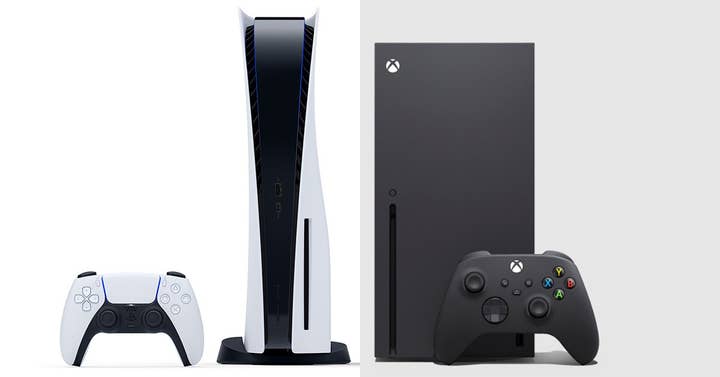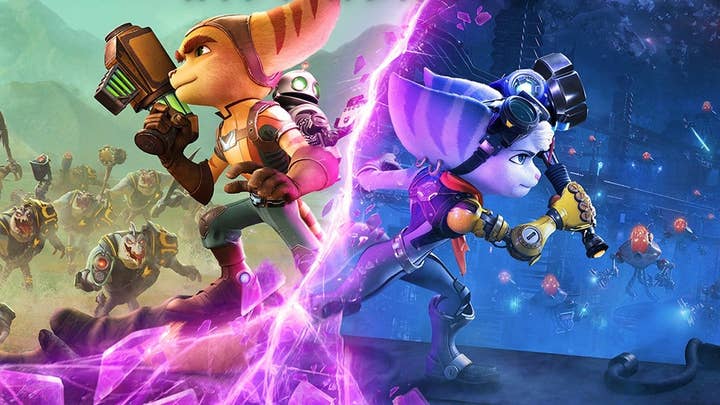Sony's plan to compete with Xbox: Stay the course | Opinion
Increasing its investment in first-party studios is Sony's first clear response to the Zenimax acquisition, significantly doubling down on its own IP and its first-party exclusives
The continuing phenomena of empty store shelves and inflated scalper prices over the past half-year or so already told us everything we needed to know, I suppose, but this week we got confirmation: both the Xbox Series X and PlayStation 5 are doing really rather nicely for themselves.
The financial results for Sony and Microsoft brought varying levels of detail about their consoles' performance, but both can be summed up as "strong" -- record-breaking, in fact. Hardware is selling as fast as either company can manufacture it, and while the global semiconductor shortage is putting a crimp on that supply chain, the volumes being moved are still enough to make this into almost certainly the fastest-selling console generation in history.
Moreover, both companies are also seeing rising numbers for their various subscription services, which is a big deal for them both -- especially for Microsoft, which has pinned much of its strategy for this generation on turning Xbox into a more hardware-agnostic gaming service.
The real contest between the two sides, the point at which they start swiping customers from one another for reasons other than stock availability, remains quite a way down the line
Everything is going great so far, then, but it's fair to say that the actual competition between these platforms hasn't really started yet. Even as the installed bases approach the ten million mark, few if any of the people who have braved the scalpers, the lotteries and the overwhelmed online retail sites to actually get their hands on a new console will have been making a serious choice between Xbox and PlayStation -- they're either early adopters who fully intend to own both at some point, or are super-fans who are deeply embedded in the ecosystem of one of the consoles and would never have seriously considered purchasing the other. The real contest between the two sides, the point at which they start swiping customers from one another for reasons other than stock availability, remains quite a way down the line.
Nonetheless, both companies are eyeing that future competition and setting their plans in place for it -- and while each firm has a slightly different vision of how the future of the console market will look, the need for high-profile, high-quality games to drive consumers to adopt their hardware and services remains crucial to both of them, just as it's been crucial to every console ever made.
Microsoft, starting from behind on this front but very clearly determined not to stay there, has made significant investments in development studios -- but perhaps tacitly acknowledging that most of those investments wouldn't pay off until quite a ways into this console generation, the company ultimately fired the biggest competitive salvo of the generation so far with the acquisition of Bethesda parent company ZeniMax. Doing so gave the company a major publisher with a pre-existing library of well-liked IP and a reasonably extensive product pipeline -- and while not all of that will necessarily be Xbox-exclusive even under Microsoft's ownership, it's obvious (and clearly stated) that the intention of the acquisition is to feed that pipeline into Game Pass, the crown jewel service of the Xbox ecosystem.

The industry is waiting for the other shoe to drop -- this is a major upset to the competitive landscape, and Sony has to have wargamed various possible responses. Don't underestimate how big a deal the Zenimax acquisition is; a platform holder buying a major publisher lock, stock and barrel is something genuinely new and a little unsettling for the industry.
Don't underestimate how big a deal the Zenimax acquisition is; a platform holder buying a major publisher is something genuinely new and a little unsettling for the industry
Previously, the most significant platform holder acquisition in recent decades was Microsoft's buyout of Rare, which had up until then been best known as a Nintendo "second-party" studio -- but that was just one developer, albeit a major one, and the move ultimately had a very limited impact on the competitive landscape. Bethesda is a much, much bigger deal; even if many of its games do also appear on PS5 (which remains possible, and even likely), "pay $70 on PlayStation or get it for free on Game Pass" is going to be a hell of an effective marketing line -- even before considering the likelihood of exclusive or timed-exclusive content and features on Xbox. Consequently, there's understandable interest in how Sony will respond to the challenge -- so Sony's results were of particular interest for any hints that might be forthcoming on that front.
The closest thing we got, in the end, was CFO Hiroki Totoki's comment about the company's plans to invest heavily in growing its internal studios -- a fairly boilerplate comment in an earnings call, but one that becomes a little more interesting when you consider the number that Totoki attached to that investment.
The increase in staffing at first-party studios carries a price tag of around $180 million this year, it seems -- that's just the year-on-year increase, not the total staffing budget -- which implies a pretty dramatic growth rate for Sony's existing studios and likely the creation of some new ones. Along with Totoki's mention of a renewed focus on second-party type relationships, the strategy Sony intends seems clear: exclusives, exclusives, exclusives, but with an emphasis on the kind that are created rather than acquired.
This makes sense -- after all, the major motivation for Microsoft in buying Zenimax must have been watching Sony drop hit after hit after hit for the PS4 in the latter years of its life and recognising how difficult it was going to be to match or exceed that kind of output.

The recent storm in a teacup over the decision not to greenlight a sequel to Days Gone only serves to highlight how extraordinary Sony's first- and second-party output has been in recent years; Days Gone was a perfectly competent and well-made game that only looks drab by comparison with the remarkable hits other Sony studios were turning out during this timeframe. Since it wasn't a highlight of the line-up, it's understandable that it's not getting a sequel; it's also not unfair to say that had Days Gone been an Xbox title, it absolutely would have been a highlight of the line-up, which only serves to illustrate the steep slope ahead of Microsoft and the reason it decided to spend billions on boosting itself uphill with a major acquisition.
Sony's plan is to stay the course, competing with Microsoft by continuing its journey to become not just a platform holder, but one of the world's biggest and most important game publishers
That major acquisition does change the structure of the industry -- it ups the stakes of platform competition and for Sony, it's arguably an existential threat. Various different responses will have been discussed and considered within the company, no doubt -- it's rumoured that an acquisition of Square Enix has been explored, for one -- but Totoki's comments seem to make clear that Sony's immediate response is going to be staying the course, doubling down hard on exactly the strategies that made the back half of the PS4's lifespan into one of the most dramatically successful periods, creatively and commercially, for any game console in history.
Whether that will be enough to see off competition from a Microsoft games division that's fired up, selling a fantastic console with a world-beating service offering, and willing to open its wallet and spend on exclusives of its own, is another question entirely. There is, however, a long-term logic to Sony's approach that's worth bearing in mind. The company wants PlayStation 5 to succeed, of course -- but ten, fifteen or twenty years down the line, it's almost impossible to say how the console business will look (or whether it'll even exist in anything that resembles its current form).
Of course, it's pretty certain that companies which hold major libraries of valuable IP and the skill and expertise to capitalise upon them will still be doing just fine. That's why, although Sony's investment will likely mean doubling down on some of the company's franchises, old and new, it's also likely to mean significant investment in more new IPs -- because expanding and building out its IP catalogue is one of the best ways it can hedge against competition and market upsets in years to come.
Not all of this makes perfect sense just yet -- the shuttering of Japan Studio and seeming willingness to let the remarkable talent that existed there just wither on the vine is something I genuinely can't wrap my head around in light of the company's intention to ramp up development elsewhere. That might be an artifact of the company itself still figuring out exactly what it needs to do to respond to the challenge represented by the Zenimax acquisition and the possible threat of even more major Microsoft acquisitions down the line.
For now, however, Sony's plan to compete in this generation is simple and audacious: it'll stay the course, competing with Microsoft by continuing its journey to become not just a platform holder, but one of the world's biggest and most important game publishers to boot.
